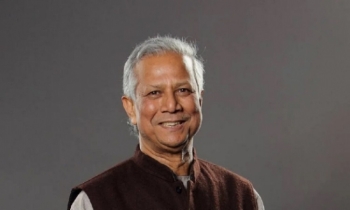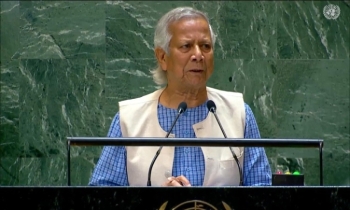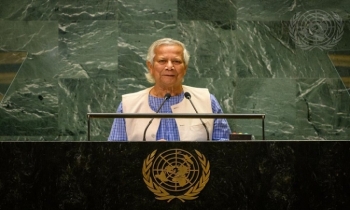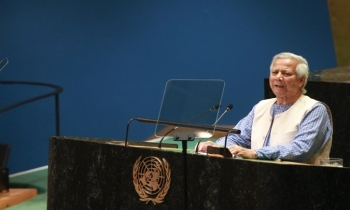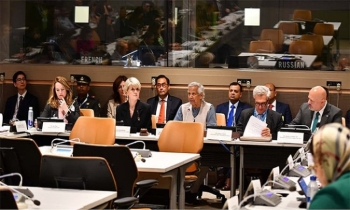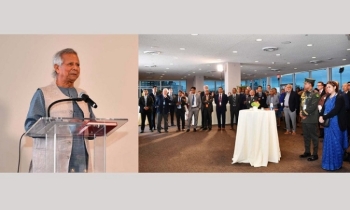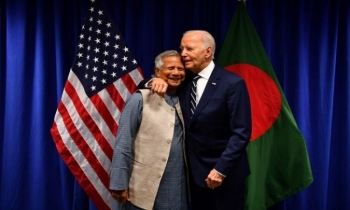Rivers have the right to flow as before: Dr Ainun Nishat
BI Report || BusinessInsider

Photo: Courtesy
The rights of a river mean the rights of the people living on the bank of it and so the river has the right to flow as it was flowing, said Dr Ainun Nishat, professor emeritus of the Centre for Climate Change and Environmental Research at BRAC University
He made the remark while speaking at a virtual session on “Rights of Rivers” on the second day of the 6th International Water Conference, organised by ActionAid Bangladesh on Thursday.
About managing the flow of rivers, Dr Nishat also stated that attention should be paid to the natural balance of the rivers, reads a press release.
The average annual flow or peak flow should be never taken into consideration, rather the month-by-month flows should be considered, he added.
About the implications of building large dams, he also added ecological and social consideration should be taken into account.
Speaking about the Teesta river issue, Dr Nishat mentioned, “Teesta has been turned into a zero-flow river,” adding that the solution could be to conserve the high flow during monsoon and using it in lean period.
During the session, the speakers focused on the socio-economic and environmental impacts of building large dams.
Dr Rohan D’Souza, associate professor at the Graduate School of Asian and African Area Studies of Kyoto University, Japan, mentioned that dams have been naturally viewed as symbols of development and nation building since 1930.
But during the 2000’s, these views were challenged on the ground that large dams often ignore people’s indigenous rights to a river, he added. Although it has been argued that large dams are good source of renewable energy, they are transforming local endowment to natural resources, Dr D’Souza mentioned.
Adil Qayoom Mallah, research scholar at the University of Kashmir, India, said, “Transboundary water has become an issue of high politics in South Asia. The hydro-political conflicts between two states are highly determined by the riparian position of the states.”
Dr Mallah also mentioned that the Teesta is the fourth largest transboundary river between Bangladesh and India and construction of large dams and barrages by the latter in the upstream has drastically reduced the flow in downstream Bangladesh.
Among others, Dr Manzoorul Kibria, professor of the Zoology Department at Chittagong University; Hina Lotia, independent expert of Climate Change and Water Resource Management in Pakistan; Dr Mahbuba Nasreen, professor and director of the Institute of Disaster Management and Vulnerability Studies at Dhaka University; Dr Catherine Grasham, postdoctoral researcher at the School of Geography and the Environment under the University of Oxford; and Farah Kabir, country director of ActionAid Bangladesh, also spoke at the session.
The three-day conference ended on Friday.


